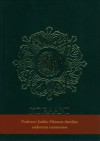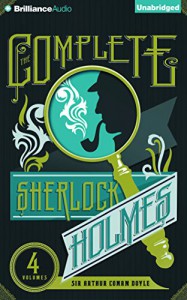rameau's ramblings
A reader who’ll try anything once, including bad books in search of good ones. Eclectic as her tastes are, she tends to gravitate to historical romances, realistic contemporaries, and some fantasy novels.
Reading progress update: I've read 498 out of 560 pages.

How can you tell a book was written by a man?
"'I don't know,' I tell Holly the mother, sister, daughter, widow, writer, friend."
 4
4
 4
4
I read it so you don't have to

I knew what I was getting myself into when I clicked that buy button and yet I did it anyway.
If you haven't noticed, I've had issues with Lanyon's work ever since I stumbled on an old book that had the characters spouting that reverse racism is a thing. Or something like it. Thing is, Lanyon spins a good yarn, if you ignore the whitey lenses of privilege, and I keep hoping maybe I'm wrong. I'm not.
Yeah, this is a sweet four star novella of two adult men spending a non-explicit night together and possibly finding a new start while waiting for a escaped prisoner to get caught or come after them.
But Lanyon can't leave well enough alone and (s)he has to make a dig about police violence and young unarmed dead persons. Race isn't mentioned, but considering this novella is published in 2016, you have to be willfully blind and/or privileged not to see what (s)he's getting at. Sure, twelve thousand words in a romantic novella isn't going to solve police brutality and racism in America, but Lanyon didn't have to be as dismissive as this:
"'Are you serious? Do you really think the majority of cops approve of shooting unarmed civilians? Of shooting kids? Do you really think guys like me want to see a departmental cover-up?'
In the face of his quiet scorn, I felt a little ashamed. 'No. Of course not.'
'There are some bad actors. We all know it. And there are some guys and gals who would be better cops if they had better training. We all know that too. But most of the men and women I work with are out there cleaning up the human garbage the best they can with the tools they've been given—and putting their live on the line every single day to keep people like you safe to write the truth however you see fit.'"
And then the narrator muses how he was wrong but not completely, and how much he likes his police protector for being able to argue the subject dispassionately. And they agree it's a sore subject for the both of them.
Sore subject indeed.
 8
8
Inception for bad books

...maybe you'll climb out of it at some point but the smart ones drive off the bridge right at the beginning.
Oh, wow. That turned out more meta than I intended.
Anyhoo. The first chapter is called The Bridge, it's only two pages long and it's the only good chapter in this book of 521 pages. There were a handful of good observations or amusing passages here or there, but nothing resembling a coherent, well written, good story. And I wasted all three weeks of my holiday reading it. So. Boring.
I have an itch to read The Handmaid's Tale at some point, so I won't say I won't be reading Atwood ever again. But it's a close thing.
 5
5
DNF on page 64 out of 426 pages.

I'm giving up on this after that particularly twisted paragraph on rape culture logic. Wurtzel seems to be saying that women should proudly announce when they've been raped but we really don't need to know the names of the culprits, and this somehow fixes the problem.
Samhain Publishing
 7
7
Reading progress update: I've read 38 out of 426 pages.

The more I read this book, the happier I am that it exists as a proof for equality:
White women can suck at writing and get published just like white men!
 4
4
Reading progress update: I've read 35 out of 426 pages.

I like the Thelma & Louise quote the introduction started with but the writing is so messy. And white. It's the kind of white that puts the White in White Feminism.
What was that?

In theory, this book should be brilliant. In practice, it's not. And I can't quite pinpoint why the alternative history doesn't work for me.
Is it because, although Evaristo changed the location names—still highly recognisable—she kept every oppressive symbol white people have used and created against black people in this world? Or is it because the characterisations are terrible? There are some really good moments, but mostly it's probably because the characters have been harnessed in the service of THE MESSAGE instead of driving the story forward through all the real horrors of slavery.
Probably. Bah, I don't know. Read it yourself and tell me a better theory.
 5
5
What the ending built, the epilogue tore down

Wasn't quite sure how I felt about this book and only finished reading it because I *needed* to know. Then I quite liked the ending, it was mature and somewhat open but definitely a step in the right direction and the second I read the word epilogue I knew my joy had been premature.
Moriarty's strength is in the biting description of urban family life, so if you can't relate to it—raises hand—it's probably safer to stay away. Mysteries be damned.
 2
2
 7
7
Brilliant!

The ending fell a bit flat for me. I understand why the author went there, but it did take something out from the joy I'd been having with this book. Other than that, I've been told this book is an accurate description of a certain way of life and I'm so glad I'm not part of it. Which is to say:
Tips!
Read this, if you don't plan on having kids or already have all the ones you're going to have.
Don't read this, if you're planning on having kids.
Booklikes has been sold?
In case you aren't following the Bug Reports discussion, YouKneeK and I have come across some details that may indicate that Booklikes was sold.
YouKneeK found that Dawid Piaskowski stopped being Booklikes' "CEO and cofounder" in April 2016. I discovered that Joanna Grzelak-Piaskowska, Booklikes' other cofounder and owner, sold Booklikes in 2016 ("After selling Okazjum.pl to Bauer Media Group in 2015 and BookLikes in 2016, Joanna with her husband are already working on something new."). Considering the info about Dawid, I would guess that the sale happened sometime last month.
I've searched Google and several business and company info databases and have been unable to find anything about the new owner(s). Dawid Piaskowski is still listed as the owner of the site's domain name.
If anyone finds any other info, please let the rest of us know! At the moment, I'm most concerned about the owner's plans. If they intended to keep the site running, wouldn't they have introduced themselves? And, if they didn't intend to keep it running, what did they buy it for? All I can think that they might want is any data it has generated or collected. Which is a little worrisome.
 4
4
A win for feminism

It's good to know that white women have the equal opportunity to suck at writing and publishing as white men do.
If you ever feel tempted, my advice is that you should pick up the book from library, sit down to read the first short story of this collection, then put the book back on the shelf and walk away.
Just, walk away.
 8
8
Reading progress update: I've read 152 out of 291 pages.

I'm having a rage conniption over What You Want to Do Fine. It was going so well—more like meh levels but on the better side of meh—with these stories of women and their families, friends, and the world around them, and the author had to go and introduce a story about two men into this collection. Never mind the "gay for you" trope or blatant ableism and ignorance of blindness. I did not sign up for men in my stories of pretentiousness of women by a woman author.
Men have been writing and publishing this crap for decades if not centuries; we don't need it from women too.
 5
5






 2
2

